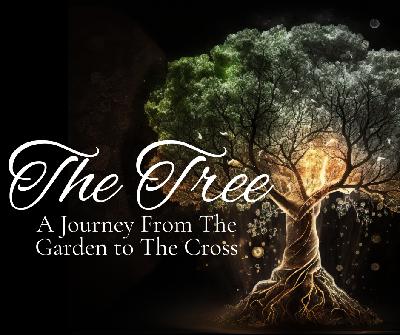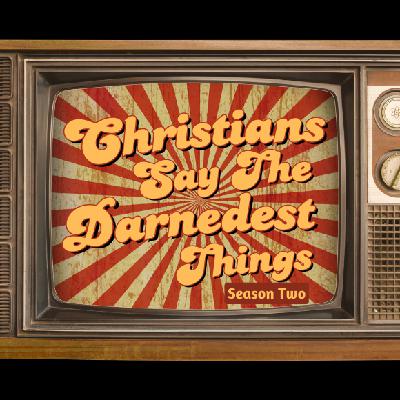Real Faith
Description
Through every sentence and paragraph that makes up James’s epistle, it oozes with wisdom as to how the Christian can live out his/her faith. The epistle helps us understand what faith looks like while suffering, how it responds to both poverty and wealth, how faith in Jesus impacts our speech, and how our faith as Christians helps us navigate life in our upside-down world.
The group of Christians James addressed his letter to were Jewish Christians who understood what it meant to be a marginalized people, even before faith in Jesus; but after belief in Jesus as the promised Messiah, they were also ostracized by members of their community, and for some, their own family members.
So, who was James? Let me begin by stating the two things that we know about the person who wrote this epistle: 1) James was the half-brother of Jesus, and 2) he did not believe in Jesus until he witnessed His resurrection. Here is why I am mostly certain that James, the half-brother of Jesus (and not the apostle James) wrote this epistle:
- The apostle James died by execution under Herod before this epistle was written (Acts 12:1-2), and the James mentioned in Galatians 2 and Acts 15 is the brother of Jesus who became a predominant leader in the Jerusalem church.
- We are told in the gospels that Jesus had biological brothers who were born to Joseph and Mary after Jesus’ birth who did not fully believe in Jesus even though they grew up with Jesus (see Matt. 13:55 ; Mark 6:3; John 7:3-5).
- Jesus appeared to his brother, James, and then to the rest of His brothers, after his resurrection (see 1 Cor. 15:6-7).
However, when James did finally believe in Jesus, he was all-in on who his older brother claimed to be, and his belief was backed up by his life, actions, and convictions. Not only was James all-in when it came to Jesus, but how he introduced himself in his epistle tells us a lot about who he was as a man of God: “James, a bond-servant of God and of the Lord Jesus Christ, To the twelve tribes who are dispersed abroad...” (v. 1).
James does not introduce himself as the half-brother of Jesus, but as a “bond-servant” of God. The Greek word for “bond-servant” is doulos, and it literally means “slave.” In other words, James’ authority as a leader does not come from his biological relationship to Jesus, but his submission to the Lordship of Christ, not as his older brother, but as the King of kings and Lord of lords. The other thing to note here is that James places “God” and “the Lord Jesus” side-by-side, implying that Jesus’ words before James believed are the truth that he has since bowed his knee too (see John 10:30 ).
I believe that James finally believed that his brother was the Messiah when Jesus appeared to him after He rose from the dead (1 Cor. 15:6-7), which is a good reminder right from the very beginning of James, that no one who has truly encountered the resurrected Christ can remain unchanged by an encounter with the living Christ. James went from a doubter who grew up with Jesus to a believer who would identify himself as a slave to God, and held Jesus as the Lord over his life.
The dispersed Christians James addressed his letter to most likely include hundreds of Christians who fled Jerusalem as a result of the stoning of Stephen and the great persecution Saul (before his conversion and was renamed “Paul”) and others brought upon the Jewish Christians in Jerusalem. I think James originally addressed his letter to those we read about in Acts 8:1-3,
“Now Saul approved of putting Stephen to death. And on that day a great persecution began against the church in Jerusalem, and they were all scattered throughout the regions of Judea and Samaria, except for the apostles. Some devout men buried Stephen, and mourned loudly for him. But Saul began ravaging the church, entering house after house; and he would drag away men and women and put them in prison.”
It was to these Christians (and others), and now to us, that James’ letter addresses. The two great themes that are repeated through this epistle are faith (a word used at least 14 times) and obedience to God as the fruit of genuine faith (there over 50 imperatives given throughout James regarding this). This is the reason for the title of my sermon series: Faith and Works. There were other titles I thought of while preparing for this sermon series that came to mind, such as: Faith-Acts, Faith-Works, but settled for Faith and Works. If you are looking for a verse that encapsulates the theme of James, I submit to you James 2:17 , “In the same way, faith also, if it has no works, is dead, being by itself.”
With the time that I have left, I would like to direct your attention to three categories that James addresses in verses 2-11 that set the tone for the rest of the epistle: 1) suffering and joy (vv. 2-4), 2) wisdom and knowledge (vv. 5-8), and 3) poverty and wealth (vv. 9-11).
Suffering and Joy are Compatible (vv. 1-4)
Suffering and joy sound just as incompatible as water and oil do they not? Whoever wanted to sign up for a healthy dose of suffering? You might be thinking to yourself: “Jesus did.” You are correct in thinking so, but do not forget that on the eve of His suffering, we are told our Lord prayed while in agony over what He was about to suffer: “And being in agony, He was praying very fervently; and His sweat became like drops of blood, falling down upon the ground” (Luke 22:44 ). Jesus even included in His prayer, “Father, if You are willing, remove this cup from Me; yet not My will, but Yours be done” (22:42 ).
The world tends to look at joy and suffering as incomparable, but James gives us a different perspective, he informs these dispersed Jewish Christians who have lost their homes and loved ones, “Consider it all joy, my brothers and sisters, when you encounter various trials...” Notice that James does not use the word “some” but the word “all” when it comes to the level of joy that we should have over the “various trials” we will experience in life.
Why should we consider it “all joy” when things get difficult in life? On the surface, it sounds like James is giving us the same advice Bobby McFerrin gave us in the late 80’s with his one-hit-wonder song, Don’t Worry, Be Happy. Some of you remember the song:
Here's a little song I wrote
You might want to sing it note for note
Don't worry, be happy
In every life we have some trouble
But when you worry you make it double
Don't worry, be happy
Ain't got no cash, ain't got no style
Ain't got no one to make you smile
Don't worry, be happy
Cos when you worry, your face will frown
And that will bring everybody down
So don't worry, be happy
Did you know that McFerrin’s song was number-one on the Billboard Hot 100 chart for two weeks straight and that he received a Grammy for Song of the Year for that song? If James told these Christians the same thing Bobby McFerrin wrote in his song, they would have assumed that James was out of touch at best, and crazy at worse! Thankfully, James is not telling Christians who face the various trials that come our way to fake a smile and repeat to ourselves: “Don’t worry, be happy.” That just will not work! James also experienced the fear his dear brothers and sisters experienced when persecution came into their city, and he no doubt felt the loss of dear Stephen when he had his head and body crushed under a barrage of rocks that resulted in Stephen’s martyrdom (see Acts 7).
James is not talking about putting a smile on your face or faking your joy after receiving news of a terminal illness, the loss of a job, or the death of a loved one. He is reminding us that there is purpose behind our suffering even when it is brought to us by the hands of evil men or rouge cells in your body. Behind your suffering is a good God who does not waste your tears nor your hurts. What James wants these Christians to understand, and what the Spirit of God wants us to know, is that the various trials you will experience are allowed into your life by design and with purpose. Consider what two other apostles had to say about the purpose of suffering in the Christian life:
The Apostle Peter: “In this you greatly rejoice, even though now for a little while, if necessary, you have been distressed by various trials, so that the proof of your faith, being more precious than gold which perishe










